Samaaro + Your CRM: Zero Integration Fee for Annual Sign-Ups Until 30 June, 2025
- 00Days
- 00Hrs
- 00Min
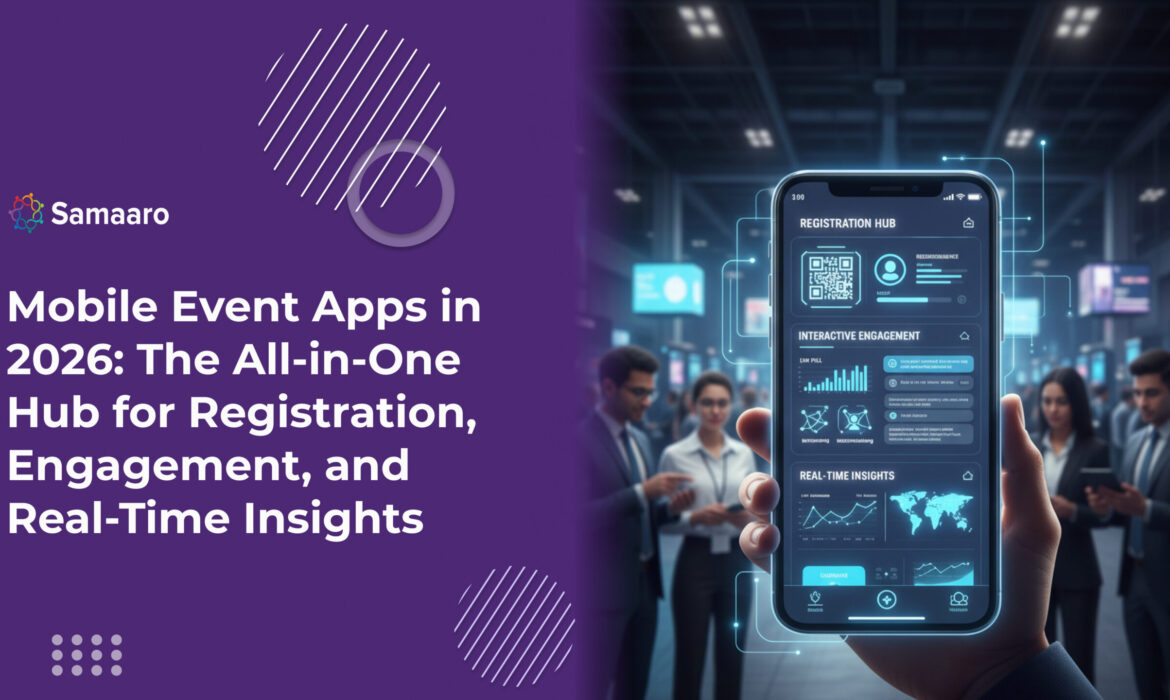
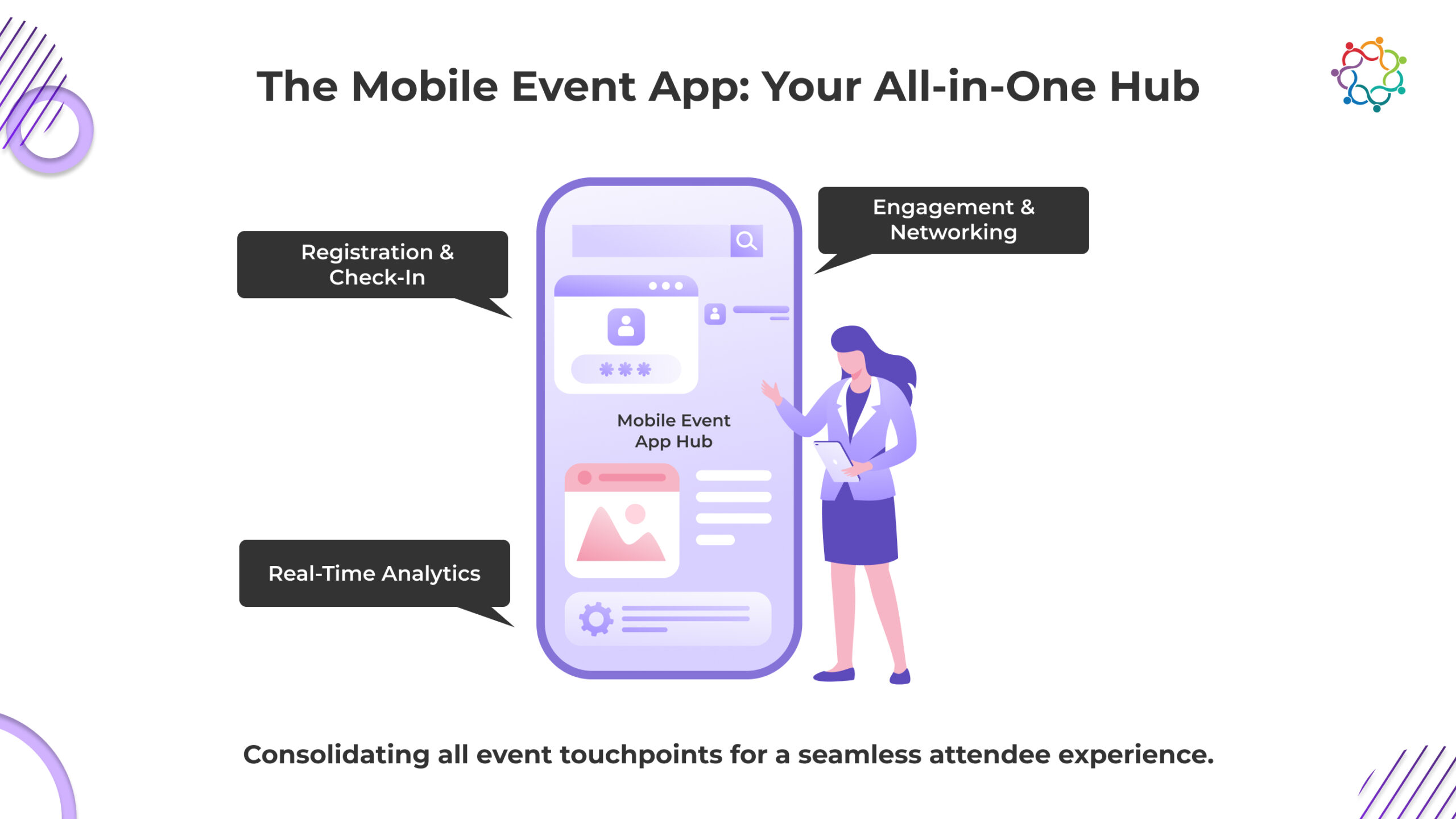
The 2026 event landscape is characterized by convenience, personalization, and interaction. Attendees now refuse to have a fragmented experience across multiple tools or touchpoints. Rather, they expect to visit a single, cohesive platform that includes registration, engagement, and responses.
This evolution has provided mobile event apps the opportunity to sit at the centre of event management. From the moment a visitor registers to post-event feedback and reporting, event apps lead the full experience, enabling the event organizer to control all touchpoints, while providing attendees with an intuitive, enriching experience.
In short, event apps are not a nice-to-have on the event tech stack; they are the operating system for live experiences.
One of the most significant changes made possible through mobile event apps is registration and check-in. Gone are the days of long lines, paper badges, and someone physically checking you in or stamping your registration.
In 2026, apps will scan QR codes, use NFC tags, and likely biometrics to eliminate all friction from the entry process. Users will receive a mobile pass that is unique to their profile, allowing them to be automatically checked in for their sessions and easily record their attendance.
For an event such as a large real estate expo or industry conference in pharmaceuticals with the potential for hundreds of people attending, the system will be seamless, moving people through the entry process and allocating them through the various sessions, with the added benefit of additional security.
For event organizers, this reliability means fewer manual errors, smoother entry operations, and improved overall efficiency. It allows staff to shift their focus from managing processes to engaging in higher-value interactions with attendees, enhancing both operational flow and the overall event experience.
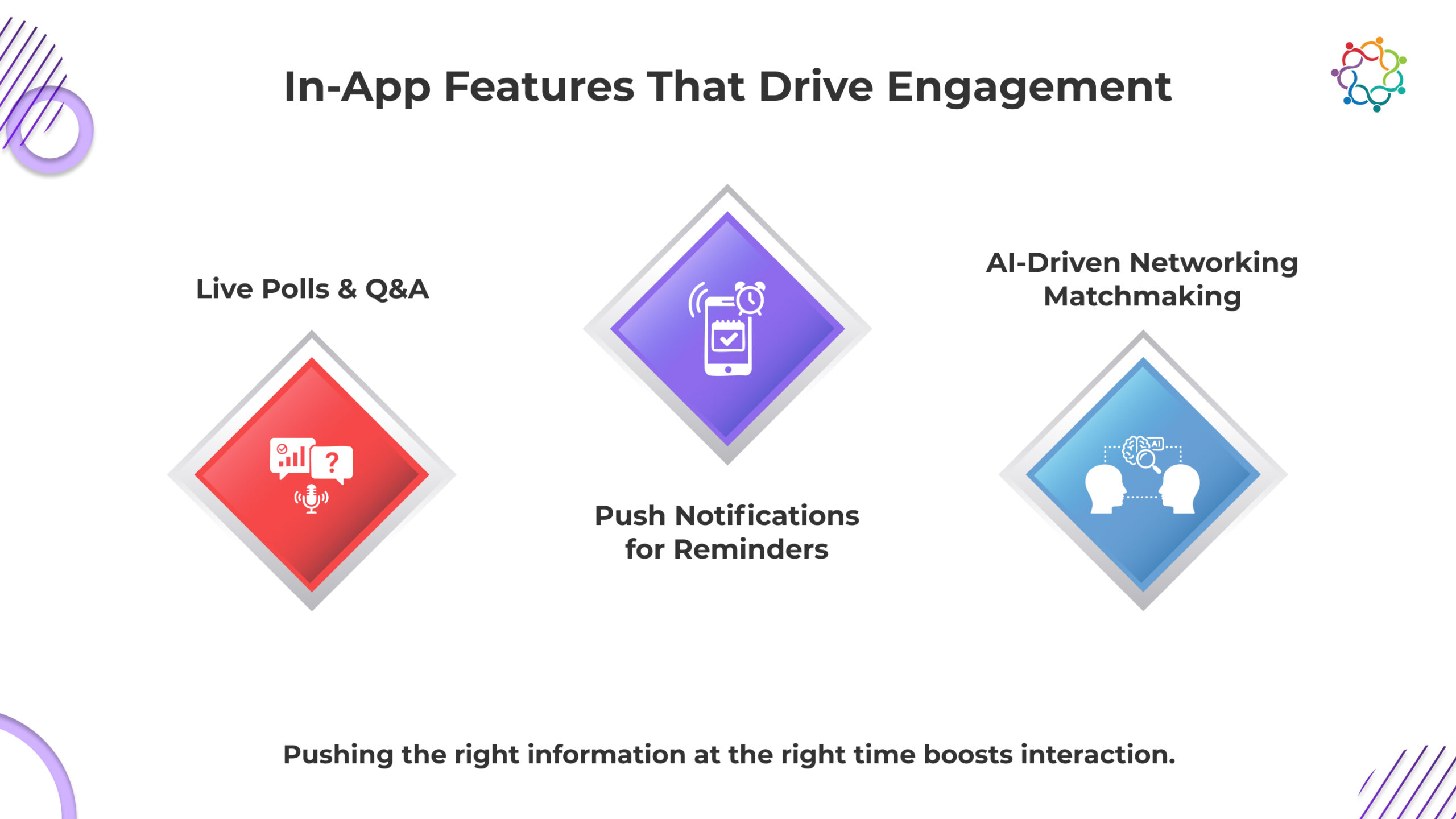
After going through the check-in and registration process and showing proof of vaccination (if required), the second phase of delivering a successful event begins. Once the attendee has their event app downloaded, the next frontier of engagement begins, and event apps bridge the audience to the content.
In 2026, mobile event apps are fully interactive ecosystems. They feature live polls, Q&As, networking lounges, and gamified engagement tools to keep participants active and engaged all day. Organizers use push notifications to navigate attendee flow to certain nearby sessions, announce a last-minute sponsor, or keep traffic to sponsor booths.
Networking is also being reimagined. App-based AI is now suggesting relevant connections, based on attendee profiles, previous participation at a session, and shared interests, allowing professionals in BFSI, real estate, and healthcare industries a base to connect in a more substantial way.
Every tap, chat, and poll submission becomes quantifiable, giving proof and live pulse to external engagement health that organizers can reference during the event.
Mobile apps for event planners aren’t just a way to engage clients; they are a treasure trove of data.
Every registration, session check-in, and completions of polls are recorded into a real time analytics dashboard that informs planners who is engaging during the event. They can see which sessions are most popular based on attendance, the busiest times of day for footfall, and which engagement activities have the highest number of participants.
For example, a developer hosting a launch for a luxury property, will see which projects gain the most interest, allowing them to deploy their sales agents accordingly. A pharma organizer can see real time attendance for CME sessions, as well as compliance credits.
By combining the attendee experience data with CRM systems, planners can better leverage this data for post-event follow-up activities and long-term engagement.
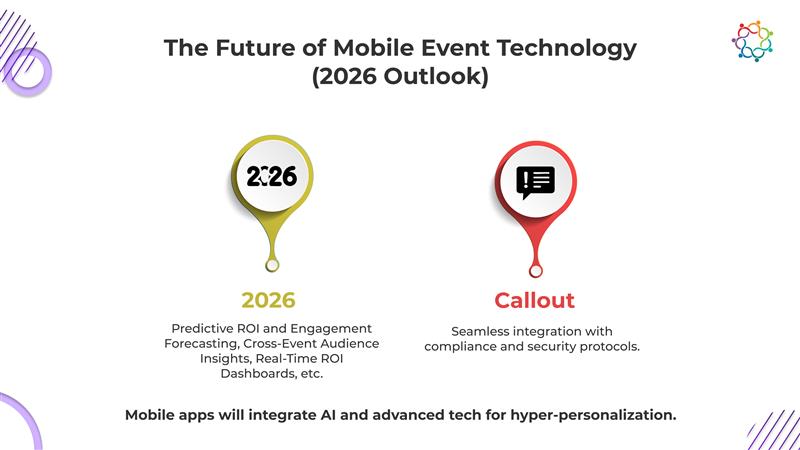
The next wave of mobile event apps is designed for performance, not flash. By 2026, organizers are demanding platforms that directly impact ROI, streamline every touchpoint, and provide predictive intelligence before, during, and after the event.
Here’s what that evolution looks like:
To see how this transformation is already unfolding, explore Samaaro’s analysis of how event technology is driving the next phase of digital transformation in events.
At Samaaro, mobile-first innovation is at the heart of how modern events are built. The Samaaro Mobile Event App serves as a comprehensive event hub, designed to bring together registration, engagement, and analytics under one roof.
Key capabilities include:
Whether it’s a high-stakes BFSI summit, a medical CME conference, or a real estate property expo, Samaaro ensures that event experiences remain fluid, compliant, and data-driven.
As we enter 2026, if an event organizer seeks to deliver measurable, scalable and memorable experiences, mobile event apps are no longer optional. They not only simplify logistics but also reimagine how events work. With effortless registration, intelligent engagement, and real-time analytics, they turn events into continuous journeys of interaction and insight.
It’s time for event teams to ask themselves: Is your event app moving your strategy forward, or is it simply digitizing what already exists?
For organizers looking to bring all these innovations together into a single, intuitive platform, solutions like Samaaro’s Event App Suite are setting new benchmarks in 2026. Explore Samaaro today!

Built for modern marketing teams, Samaaro’s AI-powered event-tech platform helps you run events more efficiently, reduce manual work, engage attendees, capture qualified leads and gain real-time visibility into your events’ performance.
Location
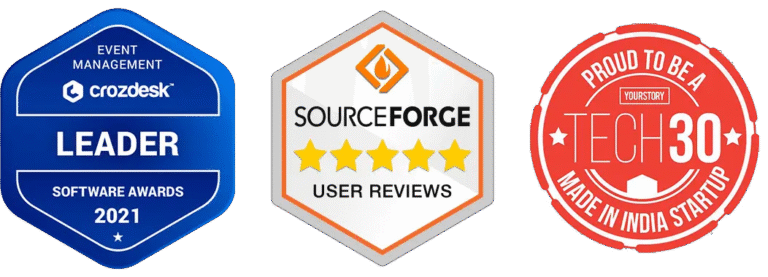
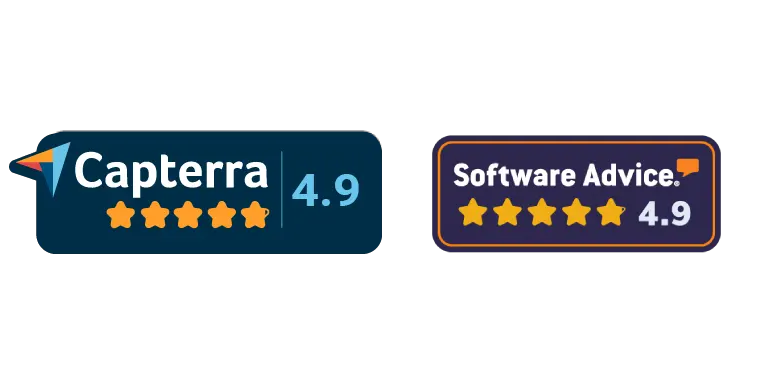
© 2026 — Samaaro. All Rights Reserved.